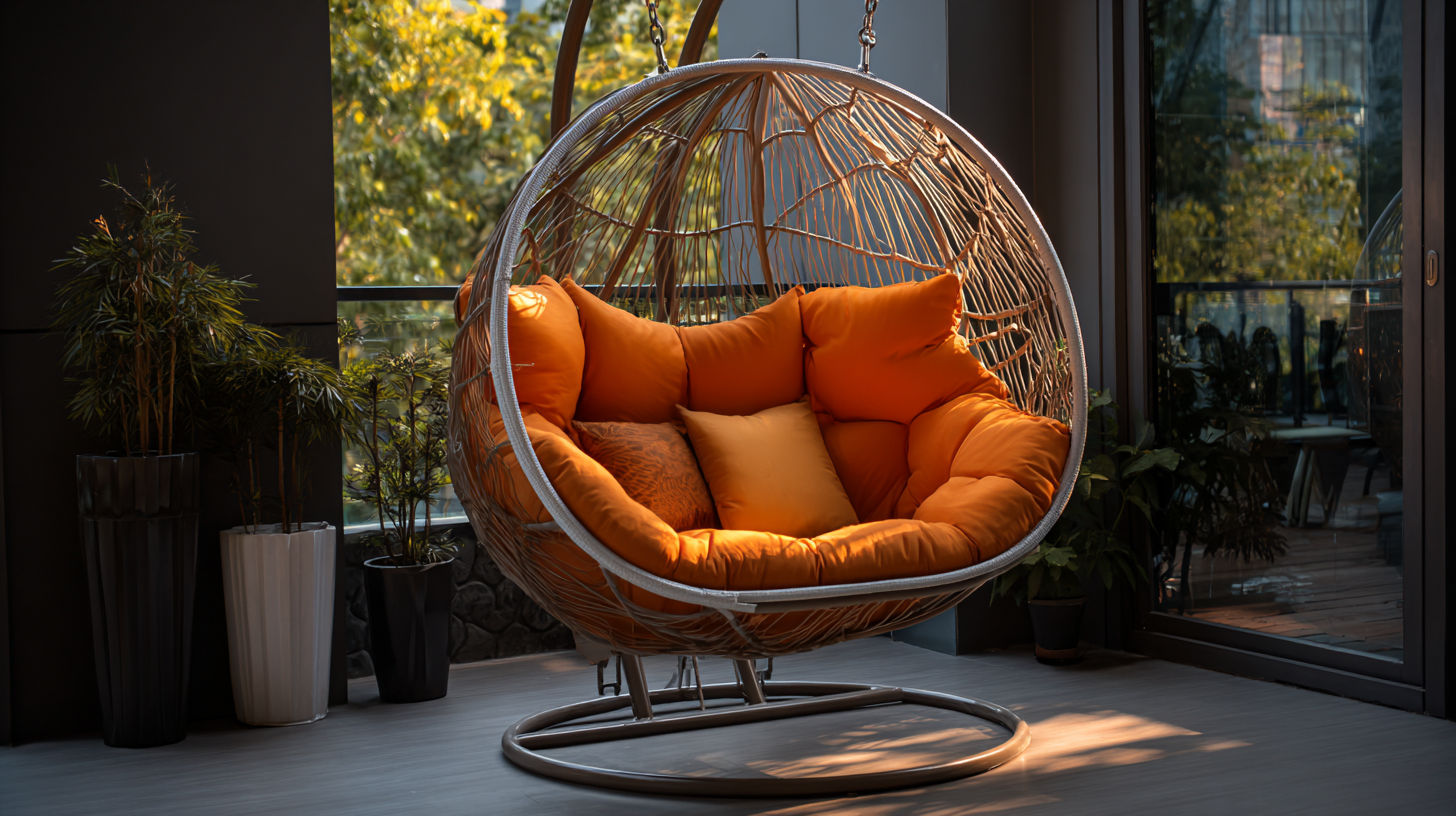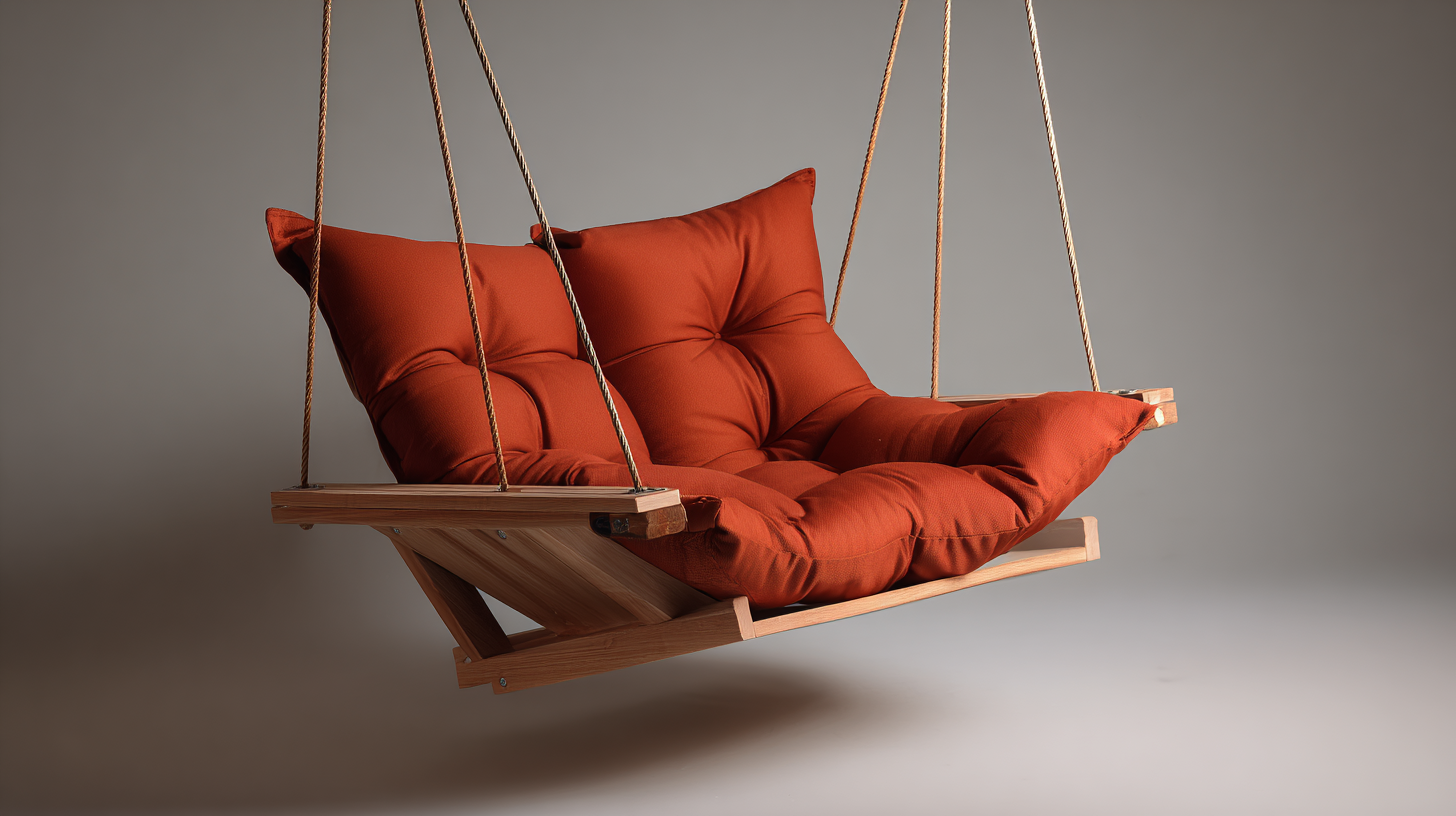
Navigating Import and Export Certifications for the Best Swing Seat in Today’s Market
In today’s competitive market, the demand for high-quality swing seats has surged, with the global outdoor furniture market expected to reach $23.6 billion by 2027, growing at a CAGR of 5.3% from 2020 to 2027, according to market research reports. As manufacturers strive to meet this rising demand, navigating the labyrinth of import and export certifications becomes critical to ensuring compliance and building trust in their products. Swing seats, sourced from top factories in China, benefit from rigorous quality standards that enhance their global reputation. However, with varying regulations and certification requirements across regions, it’s imperative for businesses to understand the certifications necessary to successfully import and export swing seats. This understanding not only facilitates smoother transactions but also assures consumers of the safety and reliability of their purchases.

Understanding the Importance of Import and Export Certifications for Swing Seats
 Import and export certifications are crucial for ensuring that swing seats meet safety and quality standards across different markets. According to the International Organization for Standardization (ISO), over 80% of consumers prioritize safety certifications when purchasing outdoor furniture, including swing seats. This increasing awareness has led manufacturers to seek certifications from recognized bodies to enhance consumer trust and promote their products globally.
Import and export certifications are crucial for ensuring that swing seats meet safety and quality standards across different markets. According to the International Organization for Standardization (ISO), over 80% of consumers prioritize safety certifications when purchasing outdoor furniture, including swing seats. This increasing awareness has led manufacturers to seek certifications from recognized bodies to enhance consumer trust and promote their products globally.
Tip: When choosing a swing seat, always check for compliance with safety standards such as ASTM (American Society for Testing and Materials) or EN (European Norm) certifications. These labels guarantee that the product has undergone rigorous testing and meets international safety guidelines.
Moreover, understanding the various certifications required for import and export can significantly affect your purchasing decisions. The Global Trade Compliance report indicates that products lacking proper certifications can result in customs delays or, in severe cases, product recalls. For instance, having the right certification can expedite shipping times by up to 30%, ensuring you receive your swing seat without unnecessary holdups.
Tip: Keep abreast of the latest import and export regulations in your region. Regularly consult trade compliance updates to ensure your chosen swing seat adheres to all necessary criteria, safeguarding both your investment and your family's enjoyment.
Key Technical Specifications to Consider When Choosing a Swing Seat
When selecting the best swing seat for your needs, understanding key technical specifications is crucial to ensure safety and durability.
According to the American Society for Testing and Materials (ASTM), a swing seat should be designed to withstand a minimum weight capacity of 150 pounds, which is essential for accommodating a variety of users.
Additionally, materials like high-density polyethylene are recommended for their resistance to UV degradation and weather elements, ensuring the seat remains safe and intact over time.
Another important specification is the swinging mechanism. A survey by the National Association of Amusement Ride Safety Officials indicates that swing seats with robust steel chains or straps rated for at least 500 pounds offer superior safety features.
The flexibility of these materials allows for smoother swinging motions while minimizing wear and tear. Furthermore, proper compliance with the Consumer Product Safety Commission (CPSC) guidelines ensures that any chosen swing seat meets essential safety criteria, reducing potential hazards for users of all ages.
Analyzing Market Trends and Demand for Swing Seats Worldwide
The global swing seat market has experienced significant growth in recent years, driven by a rising demand for outdoor recreational activities and an increased focus on child safety standards. According to a recent industry report by Grand View Research, the global market size for playground equipment, including swing seats, is projected to reach USD 3.2 billion by 2028, growing at a compound annual growth rate (CAGR) of 4.5%. This trend is attributed to the growing popularity of urban parks, themed playgrounds, and community recreational facilities which, in turn, drives demand for high-quality swing seats designed for durability and safety.
Furthermore, the shift towards eco-friendly materials has influenced consumer preferences in the swing seat market. Research from the Outdoor Industry Association indicates that nearly 60% of parents prioritize sustainability when purchasing outdoor equipment for their children. Consequently, manufacturers are adapting by incorporating recycled materials and non-toxic finishes in their swing seat designs. This aligns with broader market trends where consumers are increasingly aware of the environmental impact of their purchases, prompting an industry-wide move towards greener practices and certifications. As such, companies that can successfully navigate import and export certifications related to safety and sustainability will likely gain a competitive advantage in meeting the evolving demands of the marketplace.
Navigating Regulatory Requirements for Swing Seat Imports and Exports
As the market for swing seats continues to grow, understanding the regulatory landscape for imports and exports has become crucial for manufacturers and retailers alike. With the changes introduced during the second Trump administration, navigating these regulations requires careful attention. The regulatory environment surrounding the import and export of swing seats involves adhering to safety standards and ensuring compliance with quality certifications that safeguard both consumers and businesses.
The complexities of these requirements can be daunting, particularly for those unfamiliar with the nuances of international trade. It is essential for importers to stay updated on new policies, as any shift in administrative priorities can lead to sudden changes in compliance expectations. This necessitates a proactive approach when securing certifications, as well as an understanding of local and federal regulations that govern product safety. As businesses strive to bring the best swing seats to market, awareness of the regulatory environment will be key to their success in both domestic and international markets.
Navigating Import and Export Certifications for Swing Seats
Tips for Ensuring Compliance and Quality in Swing Seat Certifications
When purchasing a swing seat, ensuring compliance and quality through proper certifications is critical for consumers and manufacturers alike. Recent industry reports indicate that over 70% of buyers prioritize certification compliance when making outdoor furniture purchases, highlighting the importance of safety and reliability in products. It is essential for manufacturers to adhere to safety standards set by relevant authorities, ensuring that their swing seats not only meet aesthetic demands but also meet rigorous testing for structural integrity and durability.

In this current environment, similar to the aviation industry’s move toward crash-resistant fuel systems, all swing seat manufacturers must navigate complex certification processes. A notable shift was instigated by the FAA Reauthorization Act of 2018, emphasizing the need for strict compliance protocols that can enhance overall product safety. Similarly, the swing seat industry faces rising scrutiny, with consumers increasingly wary of unverified claims and subpar quality. Research indicates that nearly 40% of recalls in the outdoor furniture segment stem from compliance issues. Thus, prioritizing certifications and adhering to safety standards is not just a regulatory necessity but a key factor in maintaining brand reputation and consumer trust.